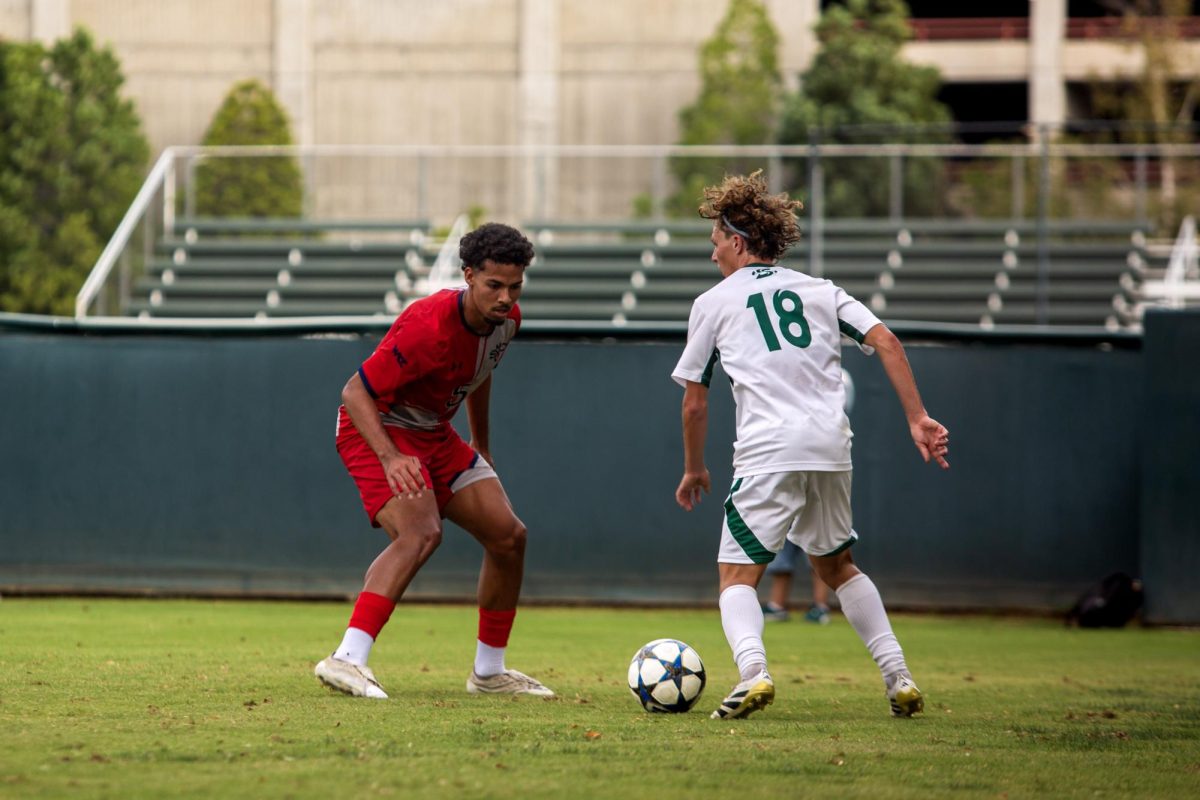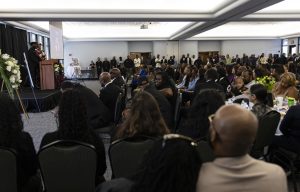Dept. of Veteran Affairs speeds up GI Bill disbursements
February 3, 2010
Sacramento State student veterans may receive money from the GI Bill earlier this year, according to a recent press release by the U.S. Department of Veteran Affairs.
According to one press release, the VA has recently hired 530 more employees to help process the high volumes of claims received for the new Post-9/11 GI Bill. The total number of VA employees processing education claims is now 1,200. In order to meet demands, employees have also been working mandatory overtime since August 2009.
“Last semester was really difficult. There were huge delays and it took months to get payments,” said Jeff Weston, Sac State’s Veteran Affairs coordinator. “By the VA speeding the process up and hiring the additional people, it’s helping us because we’re getting our tuition payments much sooner, students are getting money into their pockets sooner, so it’s one less thing to worry about during the semester.”
The VA this semester is processing about 7,000 education benefit claims daily. This is an increase from last semester’s daily average of 2,000 claims.
“As of January 22 the Department has processed more than 105,000 of the approximately 132,000 spring enrollments received,” according to another VA press release.
The VA’s Education Calls Center is also closed two days a week – Thursdays and Fridays – for staff members to devote more time to processing claims.
Kelly Chiolan, freshman psychology major who works in the Sac State VA office, said the reason for the VA’s overload is because of the new Chapter 33 program, also referred to as the Post-9/11 GI Bill.
“A lot of people that were in the service saw the opportunity that you could have. I mean, it’s a great program. You get housing, book stipend, break pay, tuition and fees. That basically covers everything,” Chiolan said. “A lot of people took advantage of it right away and separated or transferred their benefits to dependents and I guess the huge increase they had at the VA caused basically an overload of paperwork.”
Chiolan is among approximately 1,200 Sac State veterans and dependents of veterans who are receiving education benefits this semester.
In order for Sac State students to receive VA education benefits, they must fill out paperwork each semester through the campus VA office, which acts as a liaison between the university and the VA.
The campus VA office works for the university to verify student enrollment and degree progress. After a student is cleared at the university, the office sends all the paperwork to the VA for processing.
“The VA can take anywhere from two weeks to six weeks to process payments. The earlier in the semester we do it, the quicker the payments arrive,” Weston said.
The Post-9/11 GI Bill pays its benefits “in arrears,” meaning funds are provided for the month prior. If a student’s school starts late into the month, like Sac State, the first housing allowance will be a portion of what the student is eligible for.
Weston said students who have already filled out their paperwork for this semester should be receiving their benefits on time.
“This semester, things seem like they’re going much smoother, but I wouldn’t discount that with the amount of people that are getting out of the service, the strain to be on the VA to be continuous for a while,” said Dustin McMillan, junior government major.
Unlike the previous education benefits offered to veterans, the new Post-9/11 GI Bill separates the benefits into categories. While funds allocated for tuition and fees go to the school, funds intended to cover housing expenses go directly to the student. Some students may also be eligible for a yearly stipend of up to $1,000 toward books and supplies and break pay.
In order to receive the maximum amount of education benefits with the GI Bill, veterans must have completed at least 36 months of active duty after Sept. 11, 2001, or at least 30 continuous days on active duty and been discharged due to service-connected disability.
“The Chapter 33 program is going to allow a lot more individuals to come to college. You see it as a suitable alternative, to serve your country for four to six years and then go to school,” McMillan said. “I question to see how long the veterans benefits will maintain because it seems like a lot of money that they’re giving us, but I’m thankful for it.”
Inna Gritsak can be reached at [email protected].
























































































































